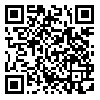Volume 12, Issue 1 (2024)
Health Educ Health Promot 2024, 12(1): 91-104 |
Back to browse issues page
1- Postgraduate School, Cesar Vallejo University, Lima, Perú
2- Faculty of Health Sciences, San Juan Bautista Private University, Lima, Perú
3- Postgraduate School, Continental University, Lima, Perú
4- Research Department, Norbert Wiener Private University, Lima, Perú
2- Faculty of Health Sciences, San Juan Bautista Private University, Lima, Perú
3- Postgraduate School, Continental University, Lima, Perú
4- Research Department, Norbert Wiener Private University, Lima, Perú
Abstract: (456 Views)
Aims: Active methodologies promote critical thinking, synthesis, and inferences. Simulation techniques create a safe environment that facilitates multidisciplinary clinical decision-making. Problem-based learning develops autonomous learning and teamwork, while the inverted classroom model promotes communication, leadership, patient-centered care, and conflict resolution. Service learning initiatives motivate new knowledge and skills and develop values such as solidarity and civic responsibility. This study aimed to explain how successful practices, understood as the application of active methodologies centered on the learner, contribute to the teaching and learning of physical therapy.
Information & Methods: In this systematic review, 80 articles were identified using a bibliographic methodology. Then, the number of documents was reduced to 49, comprising 44 articles, 3 books, and 2 theses, by searching different databases such as Scopus, Elsevier, SciELO, ERIC, ReseachGate, Dialnet, and Clinical Key.
Findings: The results correspond to active methodologies, simulation in physical therapy, problem-based learning, collaborative or team-based learning, inverted classroom, interprofessional learning, and formative practices. These diverse pedagogical strategies have been demonstrated effectively in festering autonomous, self-managed, and self-regulated learning, as well as enhancing clinical reasoning, critical thinking, communication skills, problem-solving abilities, and collaborative teamwork within the teaching-learning process of physical therapy.
Conclusion: The active teaching methodologies foster the development of communication and problem-solving skills, equipping students to tackle challenges in their professional futures.
Information & Methods: In this systematic review, 80 articles were identified using a bibliographic methodology. Then, the number of documents was reduced to 49, comprising 44 articles, 3 books, and 2 theses, by searching different databases such as Scopus, Elsevier, SciELO, ERIC, ReseachGate, Dialnet, and Clinical Key.
Findings: The results correspond to active methodologies, simulation in physical therapy, problem-based learning, collaborative or team-based learning, inverted classroom, interprofessional learning, and formative practices. These diverse pedagogical strategies have been demonstrated effectively in festering autonomous, self-managed, and self-regulated learning, as well as enhancing clinical reasoning, critical thinking, communication skills, problem-solving abilities, and collaborative teamwork within the teaching-learning process of physical therapy.
Conclusion: The active teaching methodologies foster the development of communication and problem-solving skills, equipping students to tackle challenges in their professional futures.
Keywords: Simulation, inverted classroom, learning strategies, Problem Based Learning and active methodologies.
Article Type: Systematic Review |
Subject:
Health Literacy
Received: 2024/01/12 | Accepted: 2024/03/5 | Published: 2024/03/22
Received: 2024/01/12 | Accepted: 2024/03/5 | Published: 2024/03/22
| Rights and permissions | |
 |
This work is licensed under a Creative Commons Attribution-NonCommercial 4.0 International License. |

